All-electric vehicles get the energy that propels them from powering stations or at-home wall chargers. Fueled solely by electricity, these machines need to be plugged in when the batteries are low to keep them operational. But what about hybrids? If you are considering a Toyota Sienna Hybrid and are wondering if you need to ever plug it in, we can help you. We researched this popular vehicle in depth so you'll know for sure how it works.
You will not need to plug in a Toyota Sienna Hybrid. A Hybrid vehicle relies on gasoline and kinetic energy transferred from braking the vehicle.
Now that we know that the Toyota Sienna Hybrid does not need to be plugged in, we'll take a closer look at how this technology works. You might also be curious about what happens if you run out of fuel in a hybrid or if a hybrid is better than an all-electric car. For the answers to these questions and more, read ahead in this post and see what we've turned up in our research.
How The Hybrid Technology Works
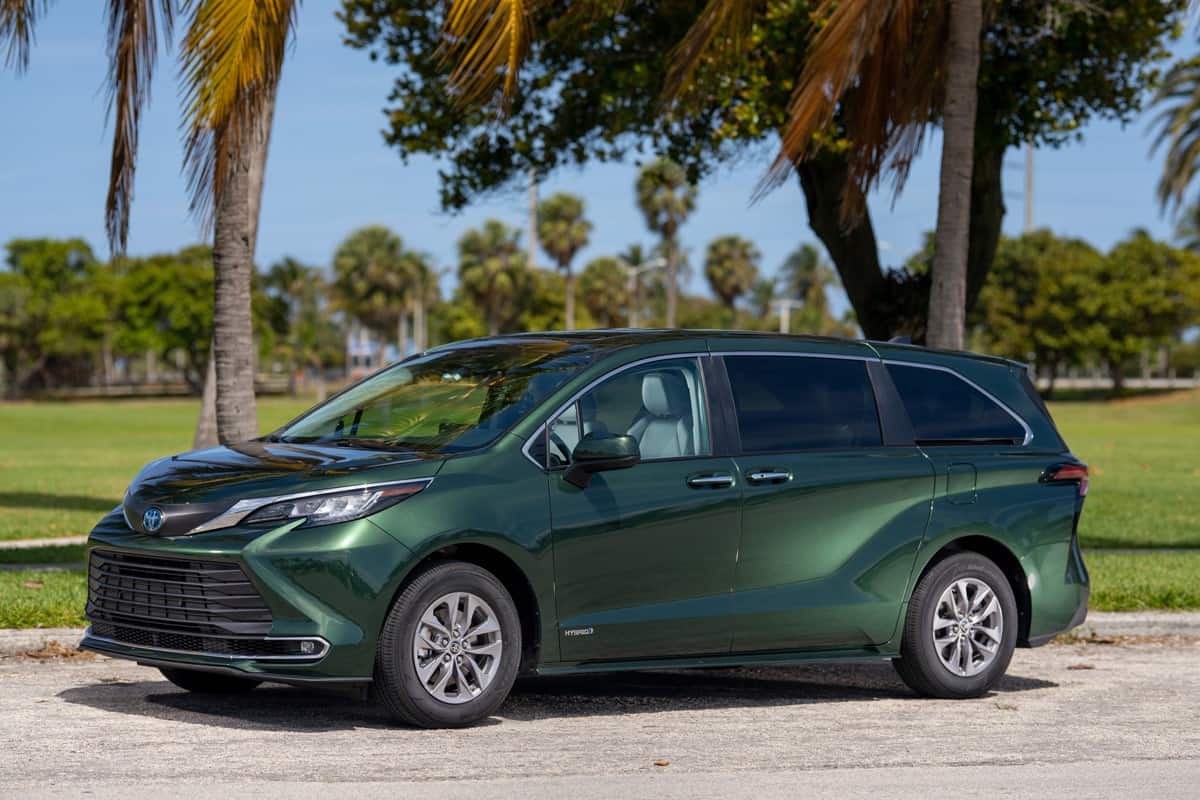
We know that the all-electric vehicles out there use pure electricity to make them move. Hybrids are another animal entirely. They require gasoline like the typical cars you might be thinking of. But they also employ other technologies to improve fuel economy.
Here, we'll take a look at the three innovations that make operating a hybrid vehicle possible.
Regenerative Braking
When you brake a vehicle, it releases a lot of kinetic energy. The action of the brake pads on the rotors expends a good amount of this energy that is otherwise wasted in a traditional vehicle. But with a hybrid, this action captures the energy and puts it to good use.
The motion of the wheels is used to generate electricity for the vehicle's battery. This helps to slow the vehicle down. This also applies to when you take your foot off the accelerator and allow the vehicle to coast.
Electric Motor Drive/Assist
The electric motor in the hybrid will kick in at different times, relieving some of the need for fuel to be burned. When you are driving at slow speeds, accelerating up a hill, or giving the throttle a bit more power to pass another car on the highway, the electric motor will kick in.
This saves a lot of fuel from the gas tank and greatly improves your gas mileage.
Automatic Start/Stop
An idling engine will waste fuel more than you might know. In town, driving can be the worst for fuel waste, as stop lights and bumper-to-bumper traffic can leave you with a lot of time in this position. Rather than just burn fuel during these times, a hybrid will opt to shut down altogether.
When your vehicle comes to a stop, the engine will shut off after a few seconds. As soon as your foot touches the accelerator, the engine automatically comes back on without skipping a beat.
This is especially handy in areas where you might be stopped in traffic for longer periods.
What Happens If You Run Out Of Fuel In A Hybrid?
If you are driving an all-electric vehicle, you won't ever have to worry about running out of anything other than battery power. But in a hybrid, you need to remember that the primary power source is gasoline. Without it, you won't be able to operate the vehicle.
If you run out of fuel in a hybrid, the vehicle will come to a stop. Just as with a traditional gasoline engine, your hybrid needs this fuel to operate.
So just because you have a hybrid doesn't mean that you shouldn't pay attention to the gas gauge. The electric motors under the hood are meant to help your fuel economy improve, not be the principal way your vehicle moves.
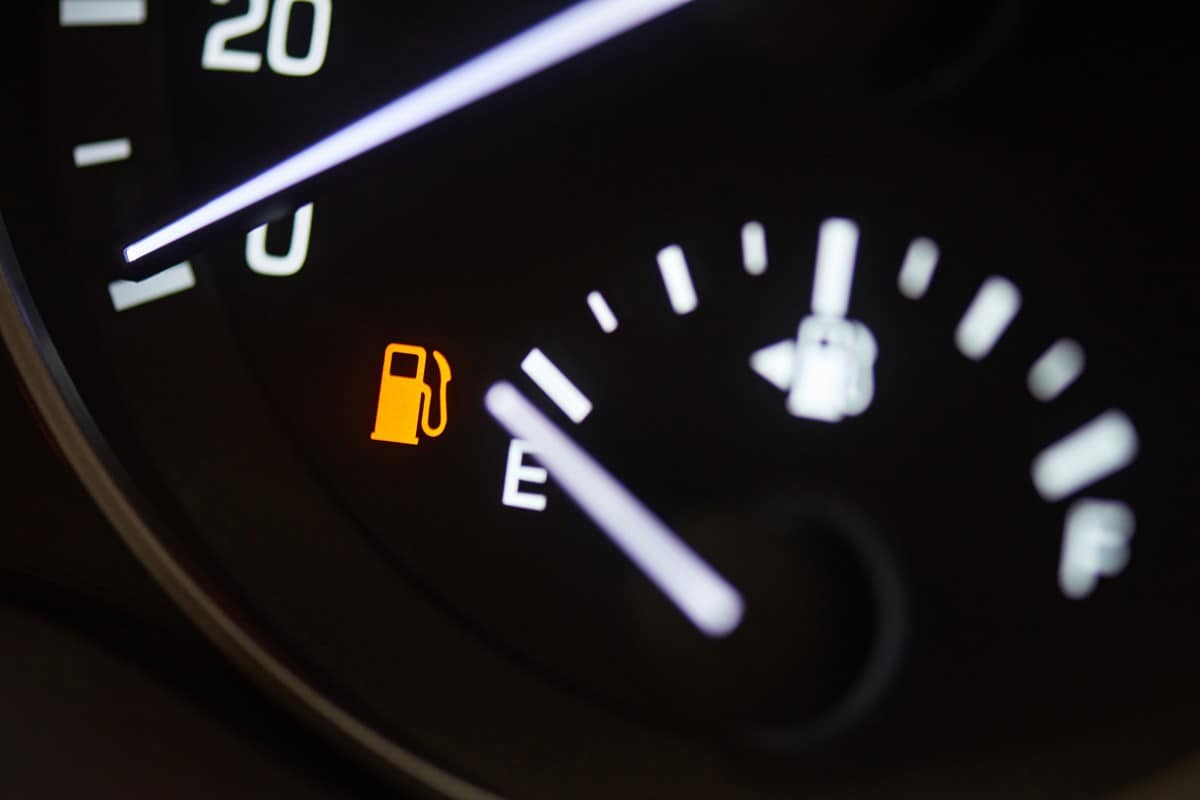
Is A Hybrid Better Than An All-Electric Vehicle?
The hybrid and the all-electric models are different animals. While each has its plus sides, they also have some caveats to be aware of.
Ultimately, which one is better will depend on what your needs are as well as your budget. But if you carefully consider the following differences, it will lead you to make a better decision as to which one will be more to your liking.
Gasoline Costs Are Not Avoided With A Hybrid
A hybrid will need gasoline, which is a lot more expensive than just plugging in and getting juice from a charger. Though you still need to pay for the charge, it is usually less than half of what you'd pay at a charging station and a fraction of that if you charge the car at home.
But charging an all-electric car takes some time. You might need to invest up to an hour of your time at a supercharger station to fully replenish a low battery. At home, a wall charger can take a day or longer to recharge. A hybrid, meanwhile will only take a few minutes to fill up at a gas station.
An All-Electric Vehicle Means Planning Long Trips With Extra Care And Caution
As long as you pay attention to your fuel gauge, you won't likely run out of gas in a hybrid. There are gas stations almost everywhere, nearly eliminating the risk of being stuck with a dry tank. With an all-electric car, however, you'll need to plan if you are looking to have a long commute or embark on a road trip.
While there are a growing number of charging stations out there, they are not always accessible when you need them. This means you have to plan out your route ahead of time.
Additionally, it's advised to always have a spare wall charger with you just in case you need it on the road. And since not all charging stations will be compatible with your vehicle, you'll want to have an adapter on board.
The Cost Of An All-Electric Is Greater But Might Save You More In The Long Run
All-electric cars are generally harder on the wallet when looking at the sticker price. But the money you save on fuel is unmatched. And these cars will last a lot longer than any gasoline or hybrid, with Tesla reported having a life expectancy of over 20 years.
These cars require a minimal amount of maintenance, too. This saves you a lot of money and a heck of a lot of time. A hybrid will need the same maintenance as fully gas-powered cars, so there's really no advantage to hybrids here, either.
When it comes to the environment, all-electric vehicles produce zero emissions and are a lot more "green" than hybrids.
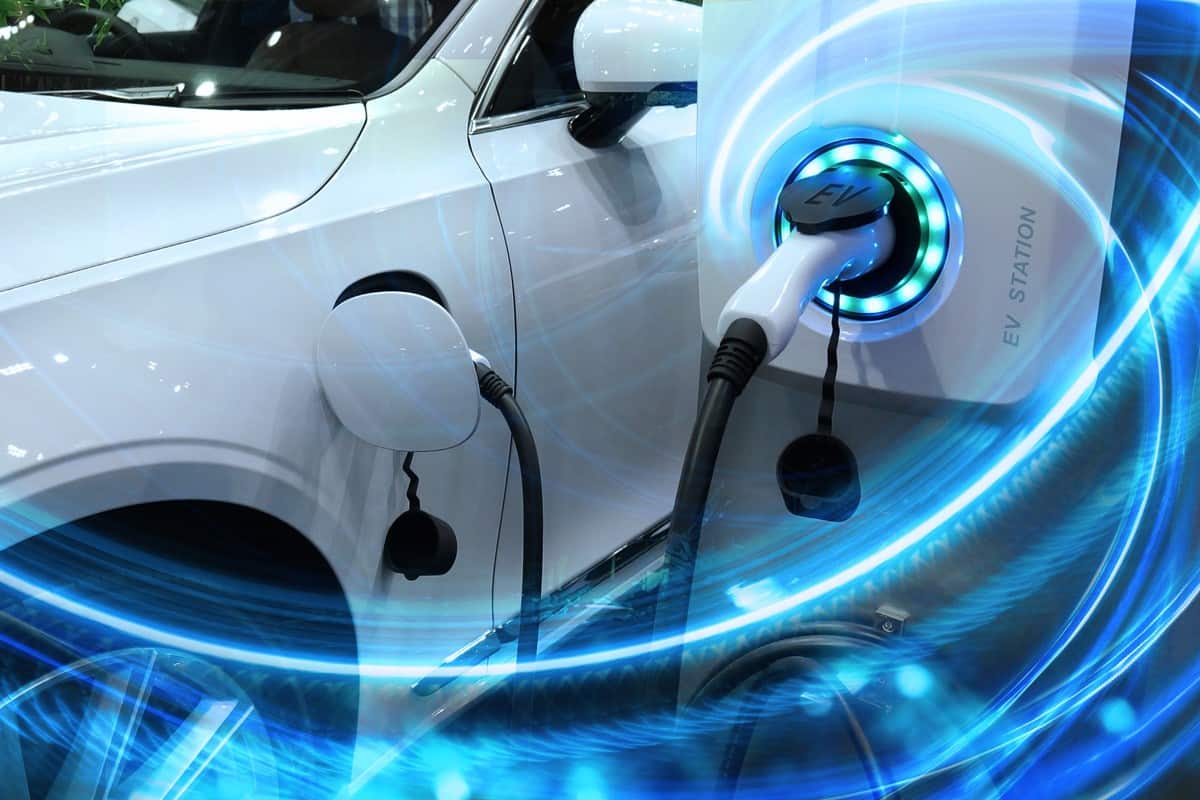
How Long Will A Toyota Sienna Last?
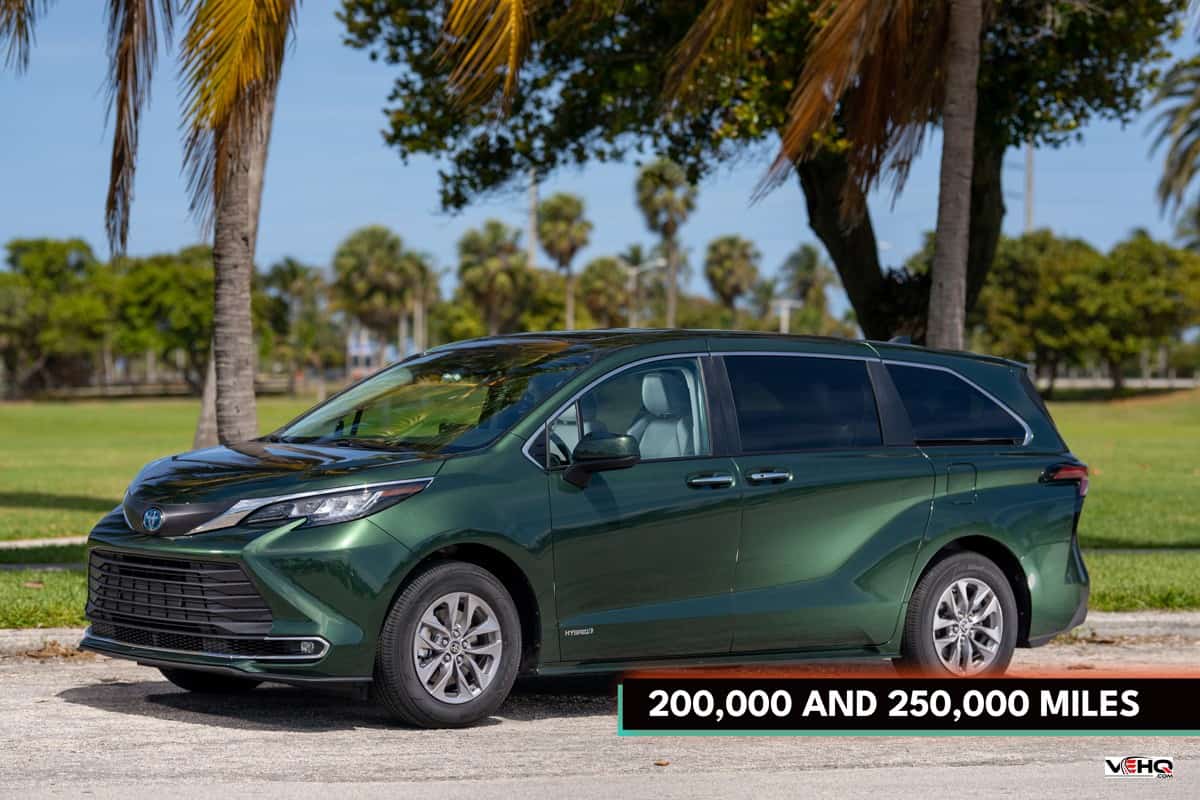
Toyota has a reputation for producing vehicles that last. Consumers flock to this brand because they know that they can usually get more for their dollar when compared to many other automakers. When it comes to their Sienna model, it doesn't disappoint in this category, either.
The Toyota Sienna will last between 200,000 and 250,000 miles. If you drive this minivan 15,000 miles each year, this means that it will still be on the road well over 13 years after you drive it off the dealership lot.
Some Sienna owners have reported that their vehicles are still being driven after well over 300,000 miles have been put on the engine.
Getting to these high mileage milestones will only happen if you take care of your vehicle. Follow the factory-recommended maintenance schedule in your owner's manual to the letter. The routine oil and filter changes, belt and joint inspections, and more will keep your Sienna on the road for years to come.
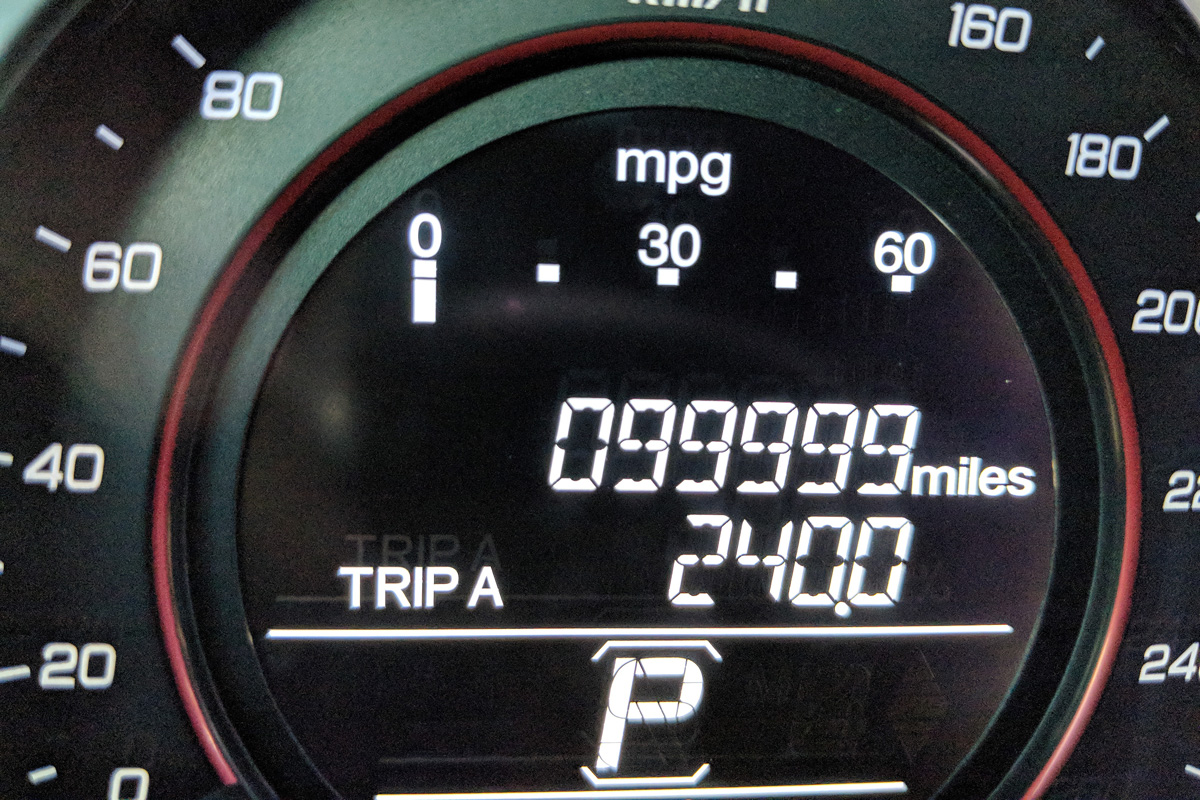
Final Thoughts
The Toyota Sienna hybrid is mostly powered by gasoline and will not need to be plugged in. These vehicles have some great advantages over any all-electric cars, but your needs and budget should be the determining factors.
Drive it safe and stay on top of the maintenance of the Sienna, and you should have no problem driving this minivan for well over a decade. Drive safe!
We hope this post on the Toyota Sienna Hybrid answered all of your questions. For additional information, we recommend reading the following posts:
How Much Does A Toyota Sienna Windshield Replacement Cost?
